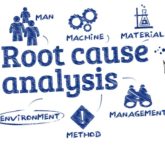Root Cause Analysis (RCA) for Beginners
What is Root Cause Analysis (RCA)? Root cause analysis usually referred to as RCA is an approach used to analyze serious problems before trying to solve them, by which the main root cause of a problem is isolated and identified. A root cause is defined as a factor which by removal would prevent the occurrence […]












